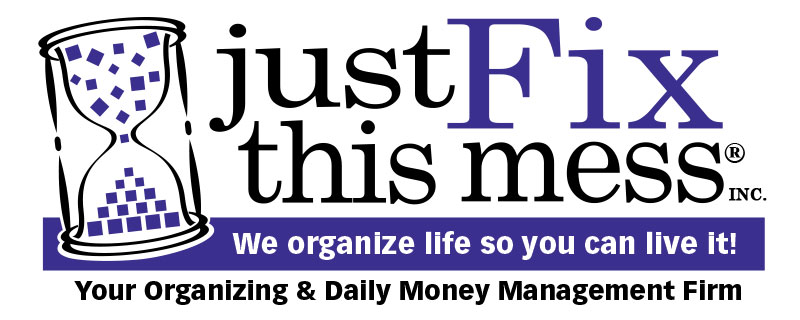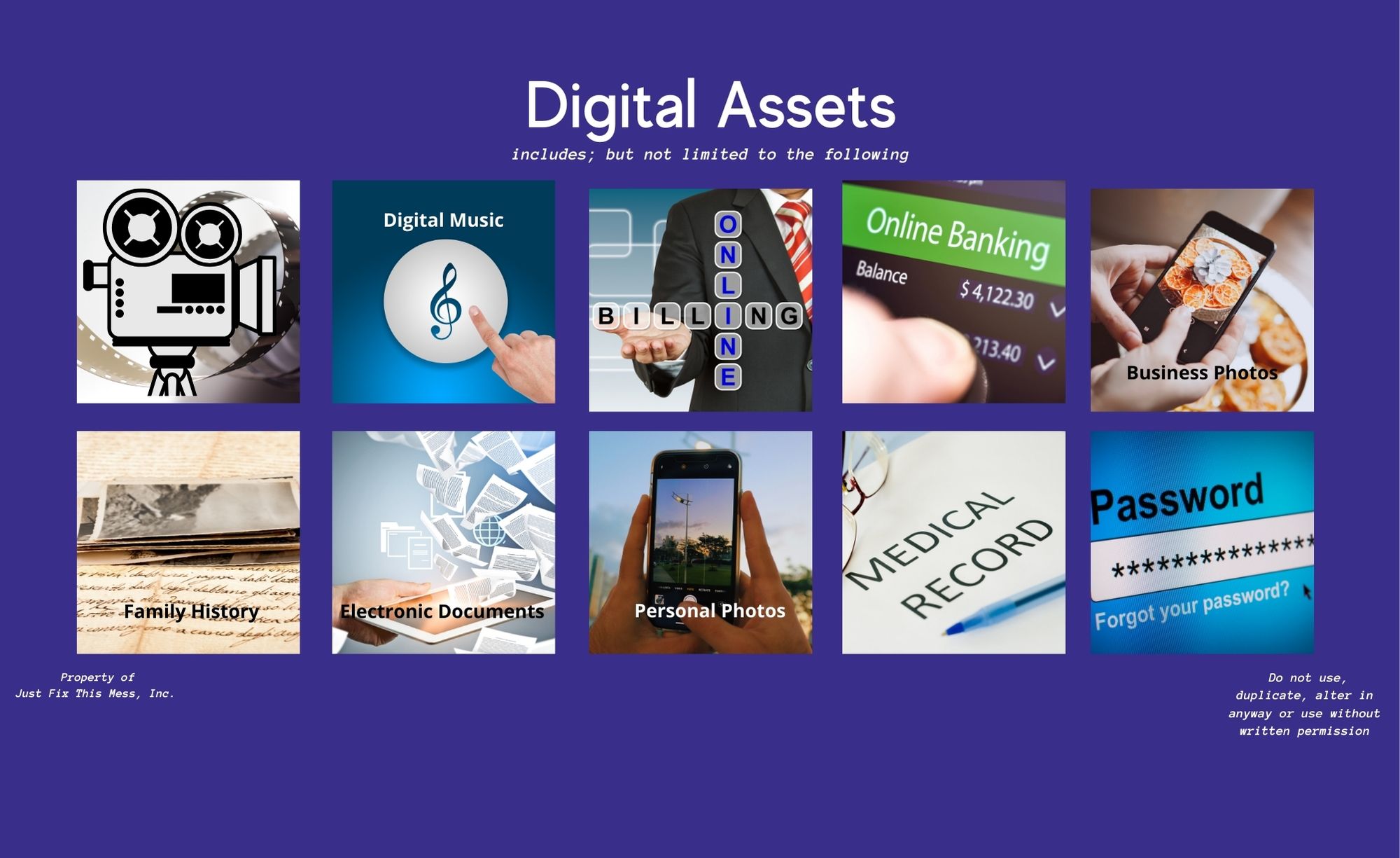What will happen to all your digital stuff after you’re gone?
Think about all the “stuff” you have online. Just think of all the money you’ve spent on your iTunes library and Kindle or Nook book collections, photos, your social medial accounts, genealogy research, along with any other type of online accounts.
A large portion of our daily lives are controlled by technology, so it is important to understand how important it is to add your digital life to your estate planning. Unless our family and loved ones have access to our accounts and know our passwords there’s simply no way they can access our data after we have died.
First, we will need to get our digital lives organized in order to know what we have so that we can leave instructions to our loved ones regarding our digital assets, how to access them, and what we want to be done with those assets in the event of death or an incapacitating illness. No matter how temporary or permanent impairment it may be.
Digital Asset Inventory
Making a list of the digital accounts you own can help you while you’re alive and active, and help your loved ones protect your memories as well as your estate and identity. You will want to be thorough with your inventory and include as many assets as possible, including login information for online portals and online accounts. Also include any bills you pay online, automatic payments, etc.
Your list of digital assets may include:
For those who own businesses
Once you’ve accounted for all your digital assets, you need to incorporate them into your estate plan (speak with your attorney); not your Will because that will become public after your death.
Start organizing your digital assets with these steps.
- Email Accounts. These may be one of the most important assets to plan for because they allow your beneficiaries to access bills and notifications, and often serve as access credentials for other digital services. The content of your email may also be important for sentimental value or help to settle the estate. Do note that, as a privacy measure, the RUFADAA (Revised Uniform Fiduciary Access to Digital Assets Act) does require you to leave specific permission for an executor to access email messages.
- Online Assets Inventory: Make sure you include a list of online assets along with assigned usernames and passwords with the credentials so that your estate manager can access them. Remember though, that this information should not be included in your will, as that becomes a public document when you die. Record them separately and make sure your executor can find them. Password management software like LastPass or Dashlane may be useful for this because they can store multiple passwords but require only one to access them.
- Explain Your Wishes for your Online Assets: Explain what you would like done with each asset or account. Should your social media accounts be deleted immediately, or should the contents be archived? What about digital assets that have monetary value or generate revenue, such as a website or online storefront? Don’t leave anything to chance or unclear.
- Name a separate executor. Consider naming a digital executor to carry out your wishes for your digital assets. This may not be necessary if your estate’s main executor is comfortable managing digital assets as well. However, if you have particularly valuable digital assets or have specific privacy wishes, it may be smart to name a separate, specific digital executor.
- Find safe storage. Store your digital estate plans in a safe place and give instructions for accessing those plans to the people who will be managing your estate after you’re gone. This could be with an attorney, an online storage platform, or in a secure safe or file cabinet. Be sure to read all requirements, lengths of storage time, and what it takes to obtain access, etc.
The process of digital estate planning may still be developing, however taking these steps will help you and your loved ones protect your memories while managing your estate or your life. Our team can help you get your information organized and in order so that you can include your digital assets in your estate plan. You don’t have to do this alone; we are here for you. Give Sherry a call at (863) 260-0479 and she will make sure you get help.

